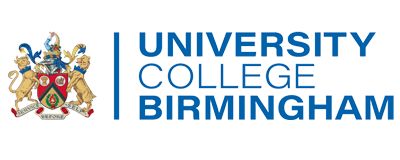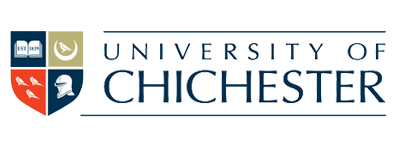10 reasons to study in Mauritius for higher studies in Mauritius for Nepalese students:
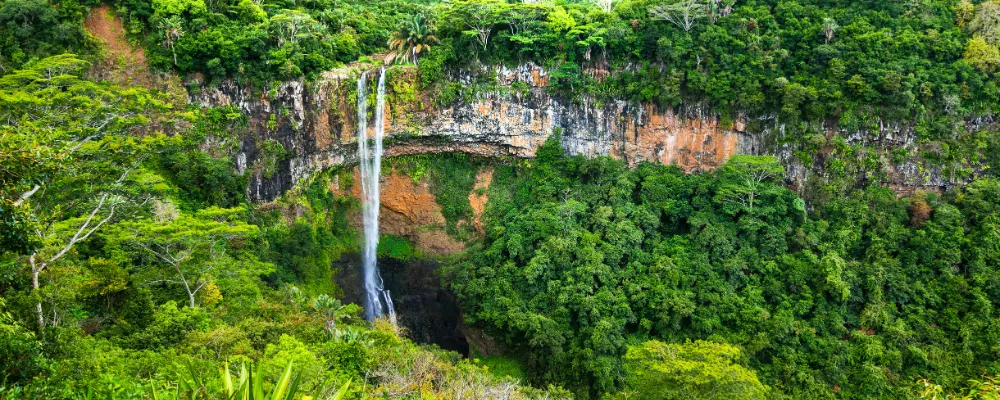
In considering higher education opportunities in Mauritius, Nepalese students are met with a diverse array of compelling reasons to pursue their academic endeavors in this vibrant island nation.
Quality Education Mauritius boasts a robust education system with internationally recognized universities and institutions known for their academic excellence and rigorous standards. Nepalese students can expect to receive a high-quality education that equips them with the knowledge and skills necessary for success in their chosen fields.
Multicultural Environment One of the standout features of studying in Mauritius is its rich cultural diversity. With influences from Africa, Asia, and Europe, Nepalese students are immersed in a multicultural melting pot that fosters cross-cultural understanding and appreciation. This multicultural environment enhances the overall educational experience and prepares students for an increasingly globalized world.
Affordable Tuition Fees Compared to many Western countries, the cost of education in Mauritius is relatively affordable. Nepalese students can pursue their higher studies without incurring significant financial burden, making it an attractive option for those seeking quality education at a reasonable cost.
Wide Range of Programs Mauritius offers a diverse range of academic programs across various disciplines, including business, tourism, hospitality, information technology, and more. Nepalese students have ample choices to pursue their academic interests and career aspirations, ensuring that they find a program that aligns with their goals and aspirations.
Tropical Climate and Scenic Beauty Studying in Mauritius offers Nepalese students the opportunity to experience a tropical climate and breathtaking natural landscapes. From pristine beaches to lush rainforests, Mauritius’ scenic beauty provides a tranquil and inspiring backdrop for academic pursuits.
Opportunities for Internships and Work Placements Many universities and colleges in Mauritius offer opportunities for internships and work placements, allowing Nepalese students to gain valuable practical experience and industry exposure. These hands-on learning opportunities enhance students’ employability and provide valuable insights into their chosen fields.
English-Friendly Environment English is widely spoken and used as the medium of instruction in Mauritius, making it convenient for Nepalese students to adapt to the academic environment and communicate effectively with peers and faculty members. This English-friendly environment facilitates a smooth transition for international students.
Safe and Welcoming Society Mauritius is known for its safety and hospitality, providing a secure and supportive environment for international students. Nepalese students can feel at ease knowing they are studying in a welcoming and inclusive society that prioritizes their well-being and academic success.
Gateway to Africa and Asia Situated in the Indian Ocean, Mauritius serves as a strategic gateway to both Africa and Asia. Nepalese students studying in Mauritius have the opportunity to explore diverse cultures, forge international connections, and access regional opportunities for travel, business, and networking.
Emerging Economy and Business Hub Mauritius is recognized as an emerging economy and business hub in the region, offering Nepalese students opportunities for professional growth and career advancement. The island’s dynamic business environment and thriving industries present students with a wealth of opportunities to gain real-world experience and build valuable networks.
In summary, studying in Mauritius offers Nepalese students a unique blend of academic excellence, cultural diversity, affordability, and opportunities for personal and professional growth, making it an appealing destination for higher education.
What are the popular courses for Nepalese students studying abroad in Mauritius?

Nepalese students studying abroad in Mauritius often pursue a wide range of courses across various disciplines. Some of the popular courses among Nepalese students include:
Business Administration and Management: Programs in business administration, management, entrepreneurship, and finance are highly sought after by Nepalese students. These courses provide a solid foundation in business principles and prepare students for leadership roles in various industries.
Information Technology (IT) and Computer Science: Courses in information technology, computer science, software engineering, and cybersecurity are popular choices for Nepalese students interested in technology and innovation. Mauritius offers programs that emphasize practical skills and cutting-edge technologies.
Tourism and Hospitality Management: Given Mauritius’ reputation as a tourist destination, courses in tourism management, hospitality management, hotel administration, and event management are in high demand among Nepalese students. These programs provide opportunities for hands-on experience in the dynamic hospitality industry.
Nursing and Healthcare: Programs in nursing, healthcare management, public health, and allied health professions attract Nepalese students interested in pursuing careers in healthcare. Mauritius offers quality education and practical training in healthcare disciplines.
Engineering: Engineering disciplines such as civil engineering, mechanical engineering, electrical engineering, and computer engineering are popular choices for Nepalese students seeking technical expertise and practical skills. Mauritius’ engineering programs prepare students for careers in diverse industries.
Environmental Science and Sustainability: Courses in environmental science, sustainable development, ecology, and renewable energy appeal to Nepalese students passionate about environmental conservation and sustainability. Mauritius’ focus on sustainability makes it an ideal destination for studying environmental sciences.
International Relations and Diplomacy: Given Mauritius’ strategic location and multicultural society, courses in international relations, diplomacy, political science, and global studies are attractive options for Nepalese students interested in global affairs and diplomacy.
Accounting and Finance: Programs in accounting, finance, auditing, and banking are popular choices for Nepalese students aspiring to pursue careers in finance and business. Mauritius’ status as a financial hub provides opportunities for practical experience and networking in the finance industry.
English Language and Literature: Courses in English language, literature, and linguistics cater to Nepalese students interested in language studies and literature. Mauritius’ English-friendly environment and multicultural society offer a conducive setting for studying English language and literature.
Culinary Arts and Food Science: Courses in culinary arts, food science, nutrition, and dietetics attract Nepalese students passionate about gastronomy and food-related industries. Mauritius’ diverse culinary landscape and hospitality industry provide opportunities for culinary education and career development.
These are just a few examples of the popular courses available for Nepalese students studying abroad in Mauritius. The country’s diverse academic offerings, multicultural environment, and focus on practical skills make it an attractive destination for higher education.
Famous cities in Mauritius for abroad education for Nepalese students:
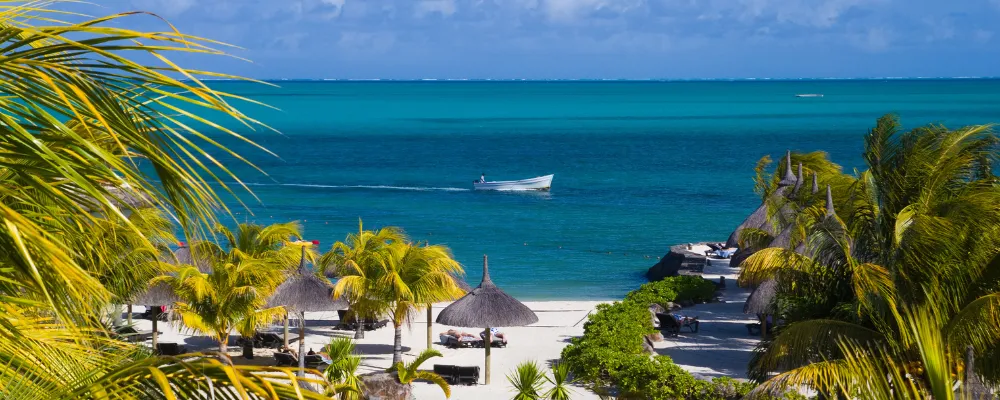
Mauritius, despite being a relatively small island nation, offers several cities and regions that are popular destinations for international students, including Nepalese students, seeking abroad education opportunities. Some of the famous cities and regions in Mauritius for studying abroad include:
Port Louis: As the capital and largest city of Mauritius, Port Louis is a major educational hub with several universities, colleges, and educational institutions. It offers a vibrant urban lifestyle, diverse cultural experiences, and easy access to amenities and services. Port Louis is known for its historical landmarks, bustling markets, and lively atmosphere, making it an attractive destination for students seeking a dynamic study environment.
Curepipe: Located in the Plaines Wilhems District, Curepipe is known for its picturesque surroundings, cooler climate, and educational institutions. It is home to several secondary schools, colleges, and vocational training centers, offering a range of academic programs and courses. Curepipe provides a tranquil and scenic setting for students looking for a peaceful study environment away from the hustle and bustle of urban areas.
Quatre Bornes: Situated near Curepipe in the Plaines Wilhems District, Quatre Bornes is another popular destination for education in Mauritius. It offers a mix of residential, commercial, and educational facilities, with numerous schools, colleges, and training institutes. Quatre Bornes provides a convenient location for students to access amenities, transportation, and recreational activities while pursuing their studies.
Vacoas-Phoenix: Vacoas-Phoenix is one of the largest cities in Mauritius and is known for its educational institutions and residential neighborhoods. It offers a diverse range of educational opportunities, including schools, colleges, and vocational training centers. Vacoas-Phoenix provides a balanced lifestyle for students, with access to educational resources, recreational facilities, and community services.
Beau Bassin-Rose Hill: Beau Bassin-Rose Hill is a vibrant city located in the Plaines Wilhems District, known for its educational institutions, commercial centers, and cultural attractions. It hosts several schools, colleges, and training centers, offering a variety of academic programs and courses. Beau Bassin-Rose Hill offers a lively atmosphere and diverse student community, making it an engaging place to study and live.
These cities and regions in Mauritius offer a range of educational opportunities, amenities, and experiences for Nepalese students seeking abroad education. Whether students prefer a bustling urban environment, a peaceful suburban setting, or a scenic countryside location, Mauritius has options to suit various preferences and academic pursuits.
What are the eligible criteria to study in France for Nepalese students?

- Academic Qualifications: Nepalese students must have completed their previous level of education (e.g., high school for undergraduate programs, bachelor’s degree for master’s programs) with satisfactory grades. They may need to provide transcripts, diplomas, or other academic documents as proof of their qualifications.
- Language Proficiency: Proficiency in French or English may be required, depending on the language of instruction of the chosen program. For programs taught in French, Nepalese students may need to demonstrate proficiency in French by providing language test scores (e.g., DELF, DALF). Similarly, for programs taught in English, proof of English proficiency (e.g., TOEFL, IELTS scores) may be required.
- Entrance Exams: Some programs or institutions in France may require Nepalese students to take entrance exams or standardized tests as part of the admissions process. These exams may assess the student’s academic knowledge, aptitude, or specific skills related to the chosen field of study.
- Acceptance into a Recognized Program: Nepalese students must receive acceptance or admission into a recognized educational program offered by a French institution. This typically involves submitting an application to the institution and meeting all requirements set by the program.
- Financial Resources: Nepalese students may need to demonstrate sufficient financial resources to cover tuition fees, living expenses, accommodation, and other related costs during their stay in France. This could include providing bank statements, scholarship awards, or financial sponsorship letters.
- Health Insurance: International students, including Nepalese students, are usually required to have health insurance coverage for the duration of their studies in France. They may need to purchase a health insurance plan that meets the requirements set by French authorities.
- Visa Requirements: Nepalese students typically need to obtain a student visa or residence permit to study in France for more than three months. To apply for a student visa, they may need to provide proof of acceptance into a French educational institution, proof of financial means, health insurance, and other supporting documents.
How do I apply for a scholarship in France for Nepalese students?

To study in Mauritius as a Nepalese student, you need to meet certain eligibility criteria set by the Mauritian educational institutions and immigration authorities. While specific requirements may vary depending on the institution and program, the general eligibility criteria typically include:
Academic Qualifications: You must have completed your previous level of education (such as high school or equivalent) with satisfactory grades. Some programs may have specific academic requirements or prerequisites, so it’s essential to check the eligibility criteria for your chosen course of study.
Language Proficiency: If your chosen program is taught in English or French, you may need to demonstrate proficiency in the respective language through standardized tests such as the TOEFL or IELTS for English or the DELF/DALF for French. Some institutions may also offer language proficiency tests as part of the admission process.
Acceptance into a Recognized Institution: You need to receive an offer of admission from a recognized educational institution in Mauritius for your chosen course of study. This offer typically comes in the form of an acceptance letter or confirmation of enrollment from the institution.
Financial Capacity: You must demonstrate sufficient financial resources to cover tuition fees, living expenses, and other related costs during your stay in Mauritius. This may include providing bank statements, scholarship awards, or financial sponsorship letters as proof of financial support.
Health Insurance: International students are usually required to have health insurance coverage for the duration of their studies in Mauritius. This can either be arranged through the institution or obtained independently.
Student Visa: Nepalese students intending to study in Mauritius for more than 90 days typically need to obtain a student visa from the Mauritian High Commission or Embassy in Nepal. The visa application process may require submitting various documents, including the acceptance letter from the educational institution, proof of financial resources, and a valid passport.
Medical Examination: Some institutions or visa authorities may require you to undergo a medical examination to ensure that you are in good health and meet the health requirements for studying in Mauritius.
Criminal Record Check: You may need to provide a police clearance certificate or conduct a criminal record check to demonstrate good character and eligibility for studying in Mauritius.
It’s essential to carefully review the specific requirements and procedures set by the educational institution and immigration authorities in Mauritius and ensure that you meet all eligibility criteria before applying for admission and a student visa. Additionally, seeking guidance from the Mauritian High Commission or Embassy in Nepal can provide more detailed information and assistance with the application process.
What are the job opportunities for Nepalese students in Mauritius ?

Nepalese students studying in Mauritius have access to various job opportunities to support themselves financially and gain valuable work experience. Some of the job opportunities available for Nepalese students in Mauritius include:
- Hospitality Industry: Mauritius is known for its tourism industry, offering opportunities in hotels, resorts, restaurants, and tour operators. Nepalese students can find part-time or seasonal employment in roles such as hotel staff, restaurant servers, tour guides, and hospitality assistants.
- Retail Sector: The retail industry in Mauritius provides job opportunities in supermarkets, shopping malls, boutiques, and specialty stores. Nepalese students can work as sales associates, cashiers, customer service representatives, or store assistants in retail establishments.
- Customer Service: Many companies in Mauritius, including call centers and service providers, hire students for customer service roles. Nepalese students with proficiency in languages such as English, French, or other foreign languages may find opportunities in customer support, telemarketing, or helpdesk positions.
- Internships and Work Placements: Nepalese students enrolled in academic programs may have the opportunity to participate in internships or work placements as part of their curriculum. These experiences allow students to gain practical skills and industry insights in fields related to their studies.
- Freelancing and Remote Work: With the rise of remote work opportunities, Nepalese students can explore freelancing or remote job opportunities in fields such as graphic design, web development, content writing, digital marketing, and online tutoring. Websites like Upwork, Freelancer, and Fiverr offer platforms for freelancers to find work.
- Tutoring and Academic Support: Nepalese students with strong academic backgrounds can offer tutoring services to local students or provide academic support in subjects such as mathematics, science, languages, or test preparation.
- Internships in NGOs and Non-Profit Organizations: Mauritius is home to various NGOs and non-profit organizations working in areas such as community development, environmental conservation, healthcare, and education. Nepalese students interested in social work or community service can apply for internships or volunteer positions with these organizations.
- Language Teaching: Nepalese students fluent in English, French, or other languages may find opportunities to work as language instructors or tutors for individuals or language schools.
- Event Staffing: Mauritius hosts various events, conferences, and exhibitions throughout the year, creating temporary job opportunities for event staff, promoters, ushers, and event coordinators.
- Research and Academic Assistance: Nepalese students enrolled in higher education programs may find opportunities to work as research assistants or academic assistants for faculty members or research projects.
These are just a few examples of the job opportunities available for Nepalese students in Mauritius. By actively seeking out employment opportunities, networking with professionals, and leveraging their skills and experiences, Nepalese students can enhance their employability and gain valuable work experience during their time in Mauritius.
What is the best time for Nepalese students to apply in the New Mauritius for higher education?
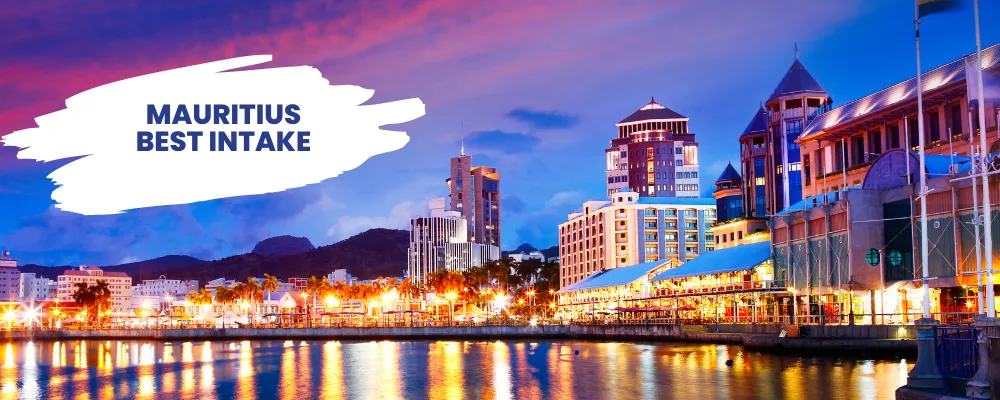
The best time for Nepalese students to apply for higher education in Mauritius typically depends on the academic calendar and application deadlines of Mauritian universities. Generally, it is advisable for students to start the application process well in advance to ensure they have enough time to gather necessary documents, complete required tests (such as language proficiency exams), and submit their applications before the deadlines.
For undergraduate programs, students may need to begin the application process at least a year before the intended start date of the program, as application deadlines for international students can vary and may be several months before the start of the academic year.
For postgraduate programs, the application timeline may also vary depending on the specific program and university. It is recommended for students to begin researching and preparing their applications at least 6-12 months before the start of the program.
Additionally, students should consider factors such as visa processing time, accommodation arrangements, and any other logistical considerations when determining the timeline for their application.
Overall, starting the application process early and staying organized with deadlines and requirements can help Nepalese students maximize their chances of securing admission to their desired higher education institution in Mauritius.

